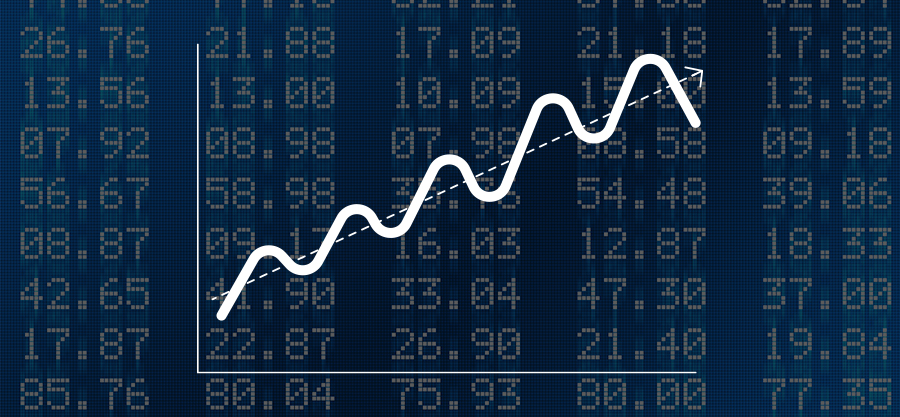Five Trends We’re Watching in 2023: The Cycle Continues

Welcome to the year of contradictions.
Amid the ongoing pandemic recovery, global unrest, and rising inflation/interest rates, the wheels of innovation continue to turn, taking the world on a roller-coaster ride of optimism and uncertainty.
The good news? We’ve been here before. Market contractions are part of the natural cycle that we at Citi Ventures have been helping our portfolio companies and partners navigate for over a decade. Each time, technological advancements and behavioral, societal, and policy shifts have helped lead the global economy out of its doldrums—a pattern we expect to repeat in 2023 and beyond.
That makes this year the perfect time for companies to mitigate risk and return to their fundamentals, while also planning for and experimenting with the innovations of the future. It is a moment of both short-term restraint and long-term opportunity—a rare chance for businesses to reassess product-market fit, test new technologies, and pivot as needed to take advantage of an economic “spring” that is sure to bloom again soon.

Here are the trends we’re watching in 2023, with an eye toward both their near- and long-term implications.
1. VC, Disrupted
The global venture capital market went through a major correction in 2022, with the value of new VC deals dropping 42% from their record-setting highs in 2021. With startup valuations plummeting and the tech and VC ecosystems retrenching, private firms may have more trouble raising capital in 2023 than in the last few years. This could present a good opportunity for corporate VC firms like Citi Ventures to support emerging startups, as we can offer additional benefits to help them make it through the downturn—such as the stability, diligence, and network of the world’s most global bank.
In the longer term, we remain confident that the VC ecosystem will continue to grow and support the world’s next great innovations: while 2022 may have been a sharp drop from 2021, it was still one of the top years in the industry’s history. Furthermore, market downturns can create new opportunities for the business leaders of the future to emerge—to wit, many of today’s biggest tech firms, including Airbnb and Uber, were founded during the Global Financial Crisis of 2008-2009. We look forward to seeing which companies bubble up in 2023, and will continue to invest in the category-definers of tomorrow.
2. Risk Appetite: Low
In an uncertain macro environment, it is often wise for companies to hunker down and focus on governance, compliance, and risk and controls—as Citi has been doing with our ongoing Transformation effort. Investors and regulators also tend to grow more conservative, seeking proven asset classes and business models and putting additional guardrails around emerging technologies. Could this be the year when the guardrails go up around the digital asset ecosytem, for example?
As Citi continues to take decisive action to simplify our firm, modernize for the digital age, and strengthen our risk and control environment, Citi Ventures is doing its part to support that effort by investing in a wide variety of fintech and enterprise tech startups—including risk and compliance solutions Sepio and TRM Labs.
3. Enterprises Bring Innovation from the Edge to the Core
For many enterprises, navigating a downturn means mitigating both risks and costs in order to align tech purchases and innovation efforts with strategic goals. As software continues to eat the world, however, many corporates are also striving to onboard and equip the talent they need to move in a more digital direction.
In the near-term, this may mean that enterprises will seek to enhance their software development efforts, invest further in key cyber security initiatives, and look for tools to help them optimize their technology spend on cloud computing and storage. Longer-term, however, the growing “developer skills gap” and rapid adoption of AI/ML technology will likely increase demand for automated solutions—particularly as emerging "generative AI" tools present unprecedented new opportunities to help companies ease developer shortages, build differentiated solutions, and deliver the kind of seamless digital/mobile experiences that modern customers expect.
We also expect companies to increasing look to leverage open-source and “as-a-service” offerings to reduce the cost, complexity, and time to market of building new solutions in an increasingly competitive landscape.
4. WealthTech Meets the “Sharing” and “Creator” Economies
The global wealth management industry did not escape the economic downturn of 2022, and further slowdowns are predicted for this year. Citi Global Wealth Investments’ Wealth Outlook 2023 report notes that “equities and bonds declined in tandem by the most ever in 2022,” and expects 2023 to bring the weakest annual global economic growth in 40 years outside of the Global Financial Crisis and the COVID shutdowns. Longer-term, however, the outlook still looks strong for growth in the space, which we expect to continue more or less steadily on its trajectory toward the $3.43 trillion that Allied Market Research predicts it will hit by 2030.
Much of this growth will be likely driven by Millennials and Gen Zers, who in the US alone are set to inherit $30 trillion from their parents over the next few decades. As those digital/mobile-first, values-driven generations take hold of their wealth, we expect to see significant adoption of wealthtech solutions, which leverage industry-wide digitization and automation efforts to help users manage and invest their money in a real-time, personalized manner. That includes providing them with access to an unprecedented range of alternative asset classes, from shares in real estate and artwork to private equity and venture capital. In the emerging “sharing economy” favored by many younger consumers, we believe that "fractional ownership” may soon become the name of the game.
Meanwhile, a new cohort of potential Wealth clients is arising among these generations: the members of the “creator/influencer economy,” which now generates an estimated $100 billion annually. Many of the top earners in this category are or may soon be High Net Worth Individuals, and as effectively sole proprietors of small businesses they have banking needs beyond the standard Wealth client. This means that there is growing opportunity to provide them (and the ecosystem at large) with a global network and diverse range of financial products and services—such as those offered by Citi.
5. ESG Moves from Hype to Impact
The down-market cycle of 2023 arrives at a pivotal time for the ESG movement, as it seeks to move past the buzz surrounding it and deepen its impact. With Citi Global Perspectives & Solutions estimating that around $125 trillion in capital investment is needed for the global economy to reach net zero by 2050, we believe that both the public and private sectors will continue to invest heavily in everything from climate fintech to urban resilience and the future of mobility—but may reduce that investment in the near-term. That could give ESG-focused companies more time to demonstrate that they can drive both environmental/social impact and financial returns, sending strong signals to investors that they are the firms most likely to succeed and grow in the future economy. We will continue to monitor those signals as they emerge.
All in all, the economic outlook for 2023 may still be foggy, but as history has proven time and again, once the clouds part the sun will emerge again. At Citi Ventures, we invest not in hype cycles but in “secular trends”—and we believe that the secular trend in the tech ecosystem will continue up and to the right for many years to come.

For more on Citi Ventures, visit our website.
